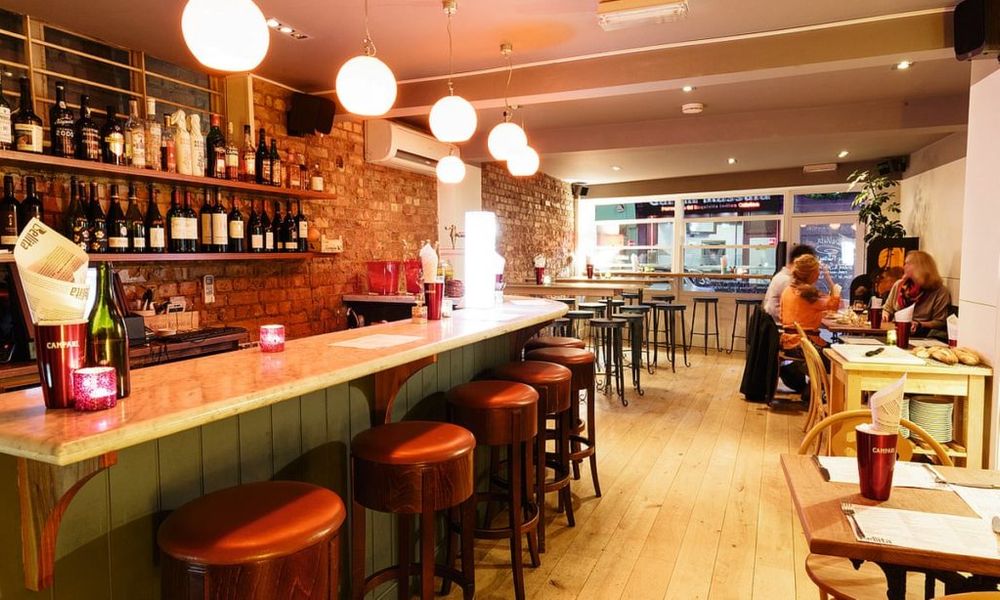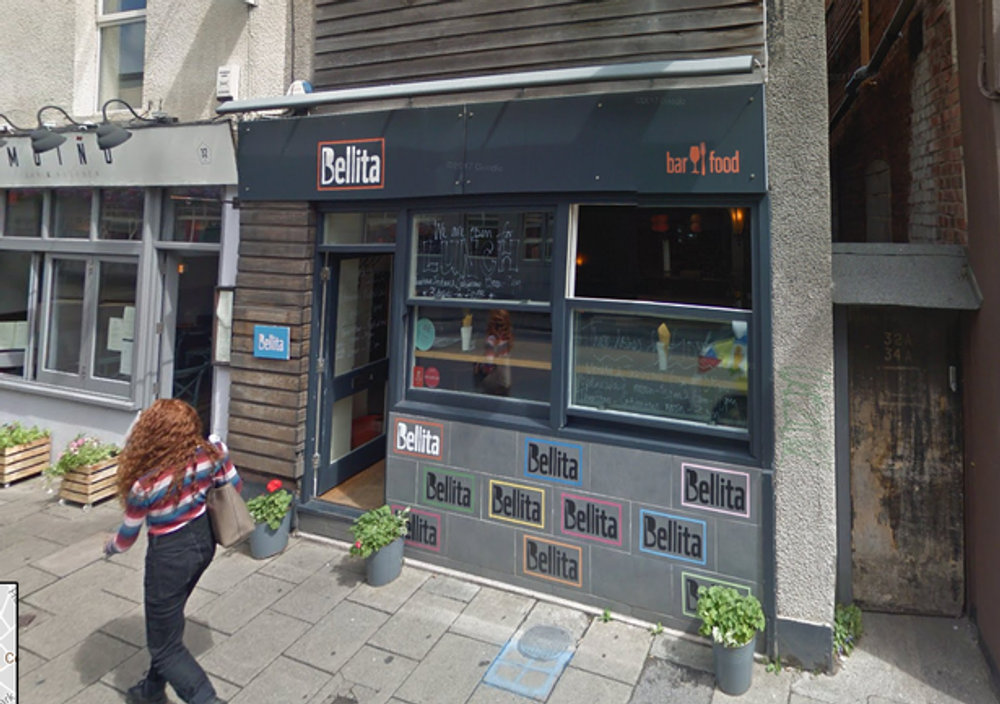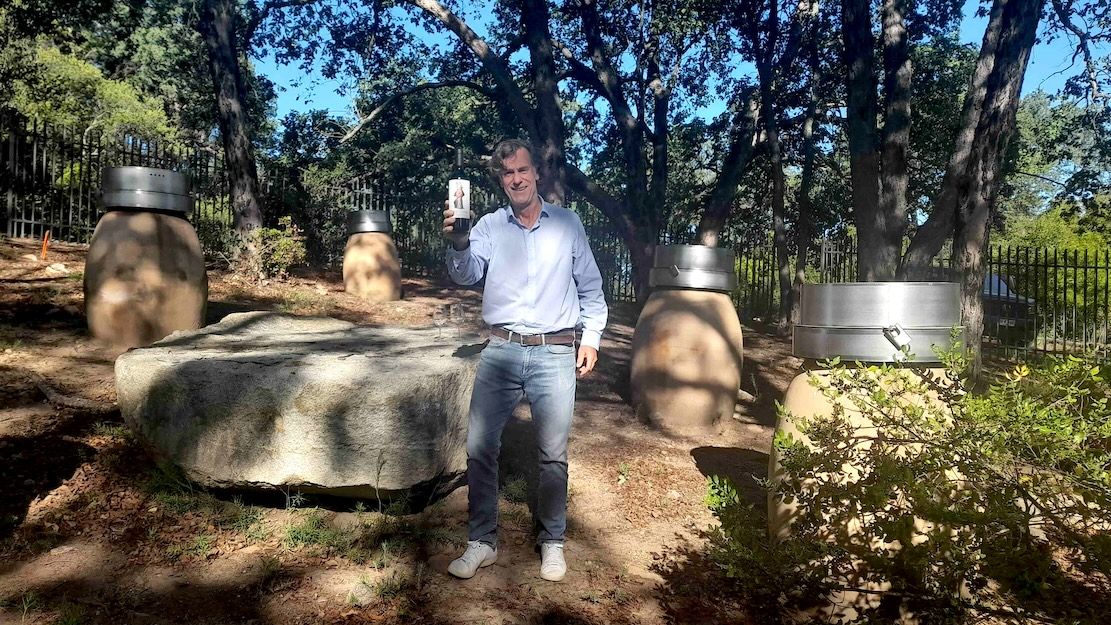For Kate Hawkings the relationships she has with the growers and wine producers she works with is as important as the wines she sells at Bellita in Bristol.
Tell us something about the background to your business?
Decades of working in restaurants in Bristol, London and beyond. First for the money (god, it was good in those loadsamoney days) then I just fell in love with the whole business of enabling people to eat, drink and have good time. I helped an old friend, Connie Coombes, open Bell’s Diner in 2013, taking on a lease of this iconic Bristol restaurant that went back to 1977, and was given carte blanche to do the wine list. It was a bit of a gamble but I threw all the standard rule books out of the window and just picked wines that really excited me – particularly those from unsung regions by little-known makers working with unusual grapes. Eyebrows were raised at the time but I’m pleased to say the approach paid off.
I opened Bellita with Connie in 2015. Bellita is more pared down in all respects so everything is kept very tight. We like to think all our food and drinks are very carefully considered so they all sit well together.

Hawkings looks to put wine at top of the agenda at Bellita
Why do you think your business stands out from the competition?
Since we opened, all the wines on the list at Bellita are made by women. The list is short and I wanted a focus; this seemed a good and natural fit. Looking back, maybe we should have shouted louder about it – I think (though didn’t know at the time) we were the first in the UK to do it. It was way before all the #metoo stuff, which might well have put me off, to be honest. I’m not a rampant feminist, but wine is still such a male-dominated industry, and I’ve heard some really shocking stories of discrimination, it just seemed right to shout out for the sisterhood of brilliant women winemakers.
We make our own shrubs (fruit-based drinking vinegars); as far as I know we’re the only bar in Bristol to do so. Their sourness makes them more grown-up and appetising than so many soft drinks, and we also use them in our shims – a carpenters’ term for something you wedge under a table leg to stop it wobbling, or a small cocktail that hits the spot but won’t make you fall over.
As for food, it’s tapas-style eating but the menu draws more from other Mediterranean influences than it does from Spain.
Describe your approach to wine buying? What are you hoping to offer your customers?
We like to offer things that go beyond the usual suspects. We’re led more by what tastes lovely in the glass than ticking the grape variety boxes. It’s nice to introduce people to grapes and regions they’re perhaps not familiar with, and the wines all have great stories behind them.
What are the main wine countries and regions that you source your wine from?
At Bellita it varies but is mainly Old World, which I guess is partly due to working with suppliers who have close relationships with their winemakers, several of whom I’ve met too. I tend to veer away from famous names and regions as I think you generally get better value elsewhere, but having said that my suppliers are really good at sniffing out bargains from all over – we’ve got a fantastic modern Bordeaux from Chateau du Champs des Treilles, for example.

Tapas and small sharing plates are the order of the day at Bellita
Has that changed much in the last five years?
There are definitely more really good wines coming out of central and eastern Europe, and these really interest me as they generally offer really good value for money. I adore dry Furmints from Tokaj, where there are many women winemakers, and our guests also love them as they’re so versatile with food.
What are the key price points for you and why?
Most of our wines are in the £24-£30 bracket; people in Bristol are definitely more cautious once it goes much above that. Good staff are essential for leading people into the realms above that.
What is the best way for a supplier or winery to work with you – what are the things they can do to make your life easier?
We choose to work with small, independent suppliers. Us minnows have to support each other against the might of the behemoths in these parlous times – and I have close relationships with them all, which is really important. It may be tempting to deal with only one or two big suppliers, in terms of administration apart from anything else, but I think this leads to a one-dimensional list. These big boys may appear to offer added value in terms of tastings, training and the rest, but these things have to be paid for and often translate into high prices for what’s in the bottle.
Smaller suppliers who work directly with producers not only tend to offer more interesting wines, their pricing is often very keen for the quality. Also, they know the kinds of things we’re looking for and flag things up to me they think might appeal. I try to make most tastings in London but of course that’s not always possible, so the good ones bring bottles down for me and the team to taste.
Being flexible with payments when cash flow is tight is also really valuable.
What are the worst things that suppliers and wineries can do?
Not doing research. I get a surprising amount of people contacting me saying they think their wines would be of particular interest to us, with attached lists that are full of nobby stuff I’d never touch. Mostly it’s the red-trousered ones. Setting un-manageable minimum orders; I have one potential supplier badgering me to take his wines but he won’t shift on a £500 minimum order. That’s just not feasible for us as we’re juggling so many suppliers and simply don’t have cash flow or space to hold a lot of stock.
What do you think will be the key wine regions, countries, varieties over the next 18 months?
Oooof. All depends on bloody Brexit, I guess. Or largely so. Central and Eastern Europe seem to be really on the rise – maturing vineyards, winemakers who are getting with it as to modern trends and tastes and the relatively low land and labour costs so they can offer great value. Also the revival in those countries of their native grapes, which attracts my interest. Although it’s been pointed out to me by a Hungarian that this is also stoking the more unsavoury nationalistic fires that seem to be burning in some of those countries.
‘Natural’ wines continue to pique interest – I’m all for ‘whatever floats your boat’ but the more wild ones are really hard to sell. I approach those with caution, but there are loads of brilliant makers out there who subscribe to low-intervention principles and make really clean, focussed wines.
I’m really enjoying the Australians doing interesting things with unexpected grapes, especially those from Italy, and Canada is really rocking my boat.
What are the biggest challenges facing your business?
Oh you know; the usual. Rent, rates, skyrocketing prices of everything, too many restaurants, everybody tightening their belts so not eating out as much as they used to and not spending as much when they do. There’s a really visceral sense of nervousness among everybody I know in the business right now.
The biggest opportunities for your business?
Just to keep buggering on.










































